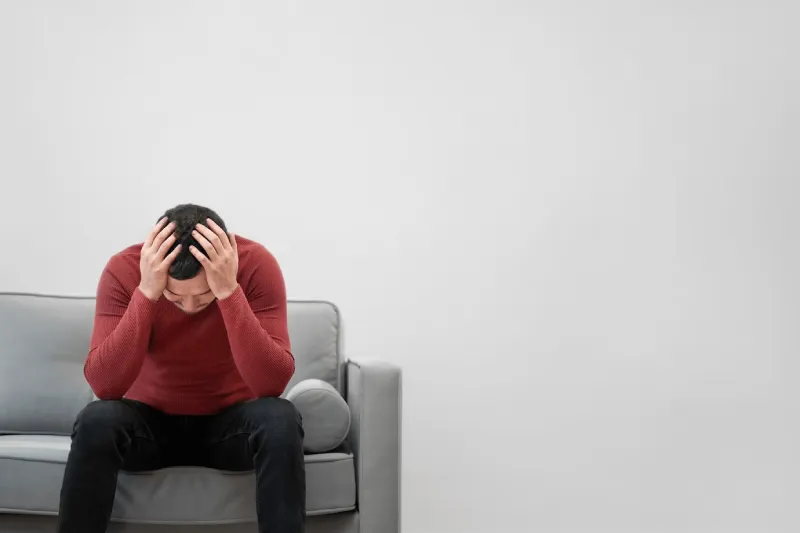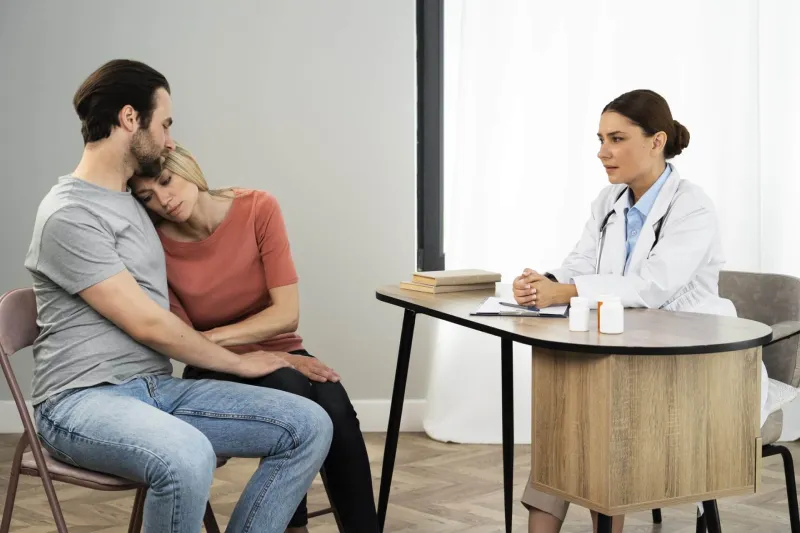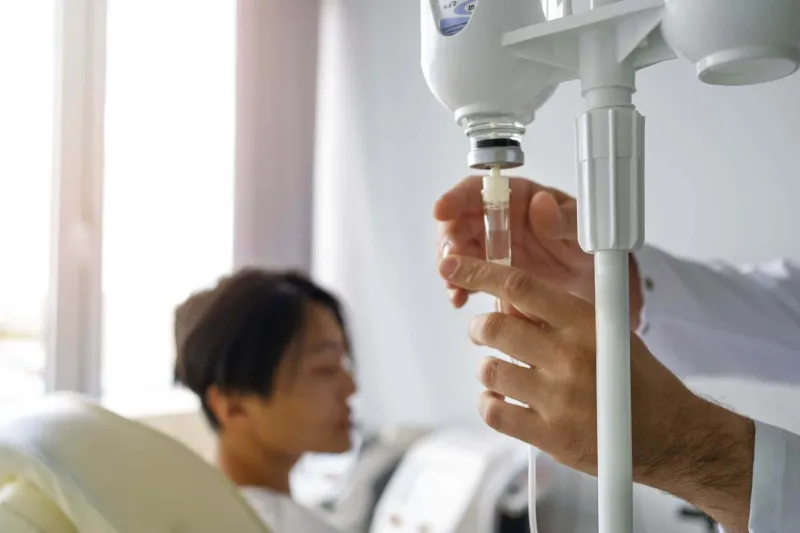
Anxiety disorders have become increasingly prevalent in today’s fast-paced, high-stress society, impacting the lives of millions worldwide. As the recognition and understanding of anxiety-related conditions grow, so does the need for effective treatment options. In this article, we will provide an insightful comparison of various anxiety treatment approaches, shedding light on the strengths, limitations, and potential outcomes associated with each.
From traditional approaches like psychotherapy and medication to alternative practices such as mindfulness and holistic therapies, we will delve into each modality’s mechanisms, evidence-based effectiveness, and potential side effects. By presenting an objective analysis, we aim to empower everyone to find the most suitable anxiety treatment option that aligns with their unique needs and preferences. So without further ado, let’s get started!
What Is Anxiety?
Anxiety is a complex emotion characterized by fear, distress, and apprehension. It can manifest as physical or psychological symptoms, such as racing heart rate, difficulty breathing, trembling hands, or insomnia. In addition, anxiety may be caused by stress in one’s life, genetics, traumatic events, medical issues such as thyroid problems, substance abuse, or withdrawal from drugs or alcohol.
To diagnose anxiety disorders accurately, a mental health professional will assess the individual’s symptoms and administer tests to determine if an official diagnosis should be given. Many different types of anxiety disorders require specific treatments for proper management.
Anxiety treatment options range from self-care techniques like exercise and mindfulness to more structured therapies such as cognitive behavioral therapy (CBT) and medication therapy. The goal of any treatment plan for anxiety should be to reduce symptoms so that individuals can live their lives with greater ease and peace of mind.
Types of Anxiety Disorders
Anxiety is a multifaceted mental health condition with many different types. Each type of anxiety disorder has its distinct symptoms and potential causes. Here is a detailed explanation of the various types of anxiety disorders, their distinctive signs, and possible underlying causes:
-
- Panic Disorder: People with panic disorder undergo recurrent and unexpected panic attacks and intense periods of fear or discomfort. These attacks are often accompanied by physical symptoms such as a rapid heartbeat, difficulty breathing, and dizziness. Individuals with panic disorder may also develop a fear of having future panic attacks, leading to avoidance behaviors.
-
- Social Anxiety Disorder (Social Phobia): This disorder involves a profound anxiety towards social situations or performance scenarios where an individual may be scrutinized or evaluated by others. People with a social anxiety disorder may worry excessively about embarrassing themselves, being judged, or being humiliated. As a result, they often avoid social gatherings or situations which can significantly impact their daily lives.
-
- Generalized Anxiety Disorder (GAD): GAD is characterized by persistent and excessive worry or anxiety about diverse domains of life, including work, relationships, health, or finances. Individuals with GAD often find it challenging to control their worries, and they may experience physical symptoms such as restlessness, irritability, muscle tension, and difficulty concentrating.
-
- Specific Phobias: Specific phobias involve intense and irrational fears of particular objects, animals, situations, or activities. Some common phobias include fear of heights (acrophobia), flying (aviophobia), spiders (arachnophobia), and public speaking (glossophobia). People with specific phobias typically go to great lengths to avoid their feared stimuli.
-
- Separation Anxiety Disorder: While commonly associated with children, a separation anxiety disorder can also affect adults. It involves excessive fear or anxiety about being separated from individuals to whom the person is emotionally attached, such as close family members or partners. Separation anxiety can lead to distress and difficulty functioning when separation occurs.
These anxiety disorders can significantly impact a person’s daily life, relationships, and overall well-being. Therefore, it is essential for individuals experiencing anxiety symptoms to seek professional help from mental health providers who can provide an accurate diagnosis and develop an appropriate treatment plan. CBT is one effective therapy commonly used to treat anxiety disorders, but other approaches may also be recommended depending on individual needs. Consulting a healthcare provider is crucial in navigating the path to recovery.
Cognitive Behavioral Therapy (CBT)
CBT is one of the most widely used and evidence-based anxiety treatment options. It is a form of psychotherapy that focuses on modifying maladaptive thoughts, behaviors, and emotions to reduce symptoms associated with anxiety disorders. CBT helps individuals identify and challenge unhelpful cognitive distortions, replace them with more adaptive interpretations, and develop healthier coping strategies.
The main goal of CBT is to help individuals recognize how their thoughts affect their feelings and behavior to decrease distress caused by troubling experiences. Through talk therapy sessions with a trained therapist, clients learn techniques to modify negative thought patterns into healthy ones, which can lead to improved physical and psychological well-being.
Overall, CBT offers numerous benefits for those suffering from anxiety-related issues. With tailored guidance from a qualified professional, significant symptom reduction can be achieved, leading to long-term mental and physical success in managing anxiety. The next step towards successful treatment involves exploring medication-based options that could further assist in alleviating the effects of stress when combined with other therapeutic interventions.
Medication-Based Therapy

Medication-based therapy is a popular form of anxiety treatment, as it can provide substantial and often immediate relief. Pharmaceutical drugs like anti-anxiety medications are the most commonly prescribed for this purpose. Still, other types of prescription drugs are available to help reduce symptoms associated with anxiety disorders. Generally speaking, these medications work by targeting systems in the brain responsible for regulating fear or worry responses.
When considering medication-based therapy for treating anxiety, it’s essential to understand that it may not suit everyone. In addition, certain anxiety relief medications may not be safe or effective depending on individual circumstances, such as medical history or lifestyle habits. That’s why consulting with a qualified healthcare professional is always recommended before taking any type of drug therapy program. Additionally, side effects should be discussed thoroughly before starting a new course of treatment.
Given its potential benefits and drawbacks, medication-based therapy remains an option worth exploring when addressing persistent anxious thoughts or behaviors. It’s one of many different approaches people can use to find greater peace of mind and improve their quality of life. With careful consideration and informed guidance from medical professionals, individuals affected by anxiety can explore how best to proceed with treatment options that suit them personally.
Alternative Treatments
Alternative treatments have become increasingly popular as an approach to anxiety relief. Many find these non-traditional methods can offer them a sense of self-empowerment and control over their mental health. Here are the different types of alternative treatments available, each with its benefits:
1. Natural Remedies: Herbal supplements, homeopathic remedies, dietary changes, meditation, and other lifestyle modifications can all be used to help manage symptoms associated with anxiety. Additionally, natural remedies often come without the side effects accompanying prescription medications.
2. Relaxation Techniques: Deep breathing exercises, progressive muscle relaxation, yoga therapy, tai chi, qi gong, and mindfulness practices can all help reduce stress levels and calm the body’s response to anxious thoughts. Aromatherapy is also beneficial in providing a pleasant scent to relieve tension.
3. Holistic Approaches: Considering both physical and emotional well-being when treating anxiety helps foster overall balance in life. Therapies such as art or music therapy provide creative outlets which can bring about relaxation while building on skills like resilience and self-care.
Alternative treatments should not replace traditional therapies recommended by medical professionals; however, they offer potential options for those looking for additional strategies to cope with distress or fear. Furthermore, combining conventional medication with holistic approaches may be beneficial in some cases.
Holistic Approaches
Holistic approaches to treating anxiety are becoming increasingly popular. This treatment focuses on the mind-body connection and emphasizes how psychological, physical, and spiritual health aspects interact. Here are the key elements of holistic approaches to managing anxiety:
-
- Mindfulness Meditation: Mindfulness meditation involves cultivating awareness of the current experience and observing thoughts and emotions without judgment. It can help individuals regulate emotions, reduce stress, and promote relaxation.
-
- Yoga Therapy: Yoga therapy integrates physical postures, breathwork, and meditation practices to enhance both physical and mental well-being. It enhances body awareness, reduces muscle tension, and calms the mind, which can be beneficial for managing anxiety symptoms.
-
- Herbal Remedies: Certain herbal remedies, such as chamomile tea, have calming effects on the nervous system and can help alleviate symptoms of anxiety. These remedies are considered natural alternatives and can be used to support overall well-being.
It’s important to remember that these holistic approaches should be seen as complementary to traditional forms of anxiety treatment options and not as replacements. For example, CBT and medication management are recognized as effective treatments for anxiety, and these holistic approaches can be used alongside them to support an individual’s healing process.
The Bottom Line
Understanding the different types of anxiety disorders and identifying which type one is suffering from can help choose the best treatment option. Cognitive behavioral therapy, medication-based therapy, alternative treatments, and holistic approaches are some of the most commonly used forms of treatment for managing symptoms associated with anxiety.
Remember that everyone’s experience with anxiety is unique, and effective management may require multiple approaches to be considered. With a wide array of choices, it’s vital to collaborate closely with your healthcare provider to identify the optimal approach for your specific needs.
At Sunshine Infusion, we specialize in professional mental health treatment to manage anxiety symptoms. Contact us today for expert support and guidance on your journey toward improved well-being.




